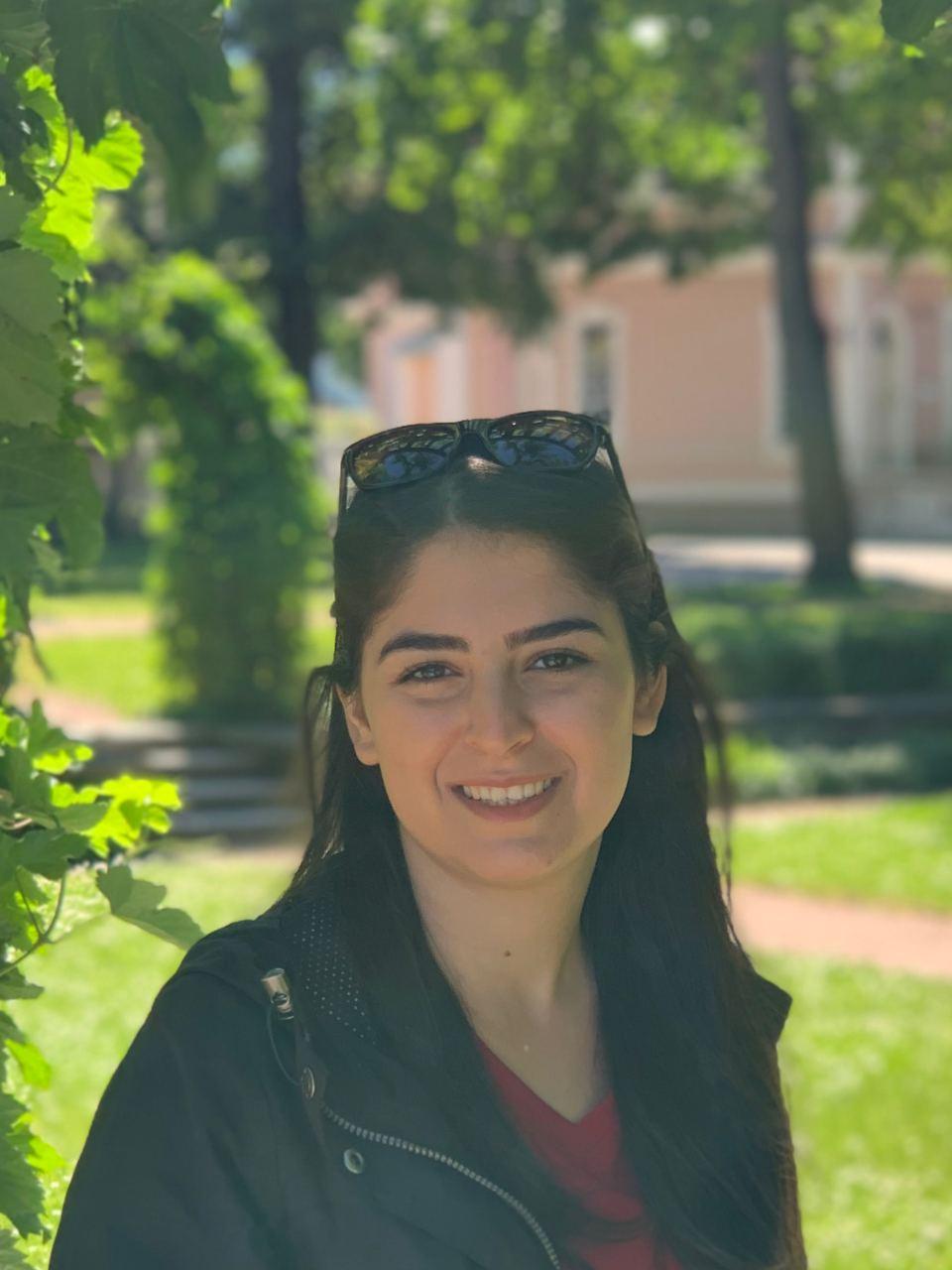An Interview with Samaneh Ammari
Samaneh Ammari got her first inspiration in programming while she found joy in making eye-opening discoveries during her school years in Iran. Studying maths and physics, and taking part in robotics classes during high school inspired a long-term commitment to further self-development in the field of technology. How a binary code with 0s and 1s becomes reality amazed young Samaneh and she wanted to find out how computers worked.
“I became curious about how it works – how do I write the code and make it become like this?”, Samaneh says. Her teacher recommended her electronic engineering studies and after high school she applied to university. An active student, she was the head of the local electronic association which organised useful and educational student activities such as factory visits and competitions. “I learned a lot during that time and it was so helpful for me and others as well. I realised that if I want to develop myself more, I should go much more further and really step into that world.”
Embedded systems at Tampere University
To keep developing in her career, Samaneh applied to Tampere University, and started studying a Master’s degree in Embedded Systems in the ITC faculty in 2018. Embedded systems is a broad category that covers almost all of the smart technology we come across in our daily lives: phones and household applications. Samaneh was curious to find out how these systems work, and the study programme taught her about hardware design, FPGAs, ASICs and System-on-Chip.
Samaneh thinks that the university curriculum meets the educational needs quite well. For example, the AI courses on machine learning and pattern recognition, System-on-Chip courses on digital design and system design, and programming courses I, II and III have proved especially useful in Ammari’s career.
After her first year of studying in Tampere, Samaneh visited a university job fair and landed a SoC engineer trainee position at Nokia. While cooperating with SoC Hub, she is now writing her Master’s thesis on designing an AI accelerator hardware architecture.
AI meets SoC
In her SoC Hub and AI Hub Tampere cooperation, Samaneh is trying to propose an AI accelerator hardware architecture that would lower power consumption for edge devices and increases performance. AI calculation can be done locally and real time. AI is a state-of-the art technology and Samaneh thinks that quantum computers using AI can revolutionise people’s lives.
Samaneh is interested in the behind-the-scenes view into technology, and the bigger picture that connects people and makes our lives easier. She mentions one example of an embedded AI system: Apple’s face detection. The mobile phone camera works as an input sensor, gathering and processing input data from different angles of the human face in order to recognise the user. This is a narrow example of how AI and SoC are combined. The AI needs computation and the edge devices, working on batteries, need low power consumption and less latency. In order to achieve this, we need Systems-on-Chip to build better AI accelerators and higher performance.
“The current job market needs more people to study embedded systems, System-on-Chip, and backend hardware design. The basic technology can be learned at university, but one should never stop learning. The industry has demand for deeper knowledge,” Samaneh says. “You should learn how to learn,” she continues.
SoC design is both individual performance and team work. It is important to ask questions and develop as a team. In AI and SoC design, the team size can cover dozens of people from different backgrounds. The field grows so fast that new people join the SoC design teams every day. “For me it is very interesting to see how the things work. When you design something it becomes part of something bigger. How does it affect people’s lives?”
Combining powerful technologies and people with the right skill set
Using powerful technologies may reduce human errors, and another touchpoint on humans is data security. People don’t want to send their personal data on servers/Cloud, but instead have local processes. AI on SoC is not sharing the information and can thus preserve data security. However, the human factor should not be removed from the process. The local process and data security are two reasons why SoC matters.
The demand for SoC design is increasing around the world, and the market is huge, because it is related to various fields such as automation and 5G. There is a need for people with the right skill set. It is also essential to keep on track with where the world is going.
“Technology is developing very fast. If you want to stay up to date, remember to read the news and articles daily”, Samaneh says.
Knowledge is power Samaneh points out that the main thing is to know what you are doing and also keep being interested in the learning process itself. ”Basically, all of us learn everything from scratch. Children learn the human basic skills, such as reading, writing and social interactions. Similarly, they can also learn to become engineers as they grow up. Step by step, educating yourself and participating in events makes a big impact as time passes. The next generation should learn to work with technology, because modern-day literacy includes computer literacy. We can change this for the next generation.”

Samaneh Ammari enjoys reading, and she recommends reading the history and development of different inventions, such as SoC and AI. Another reading tip is ‘21 Lessons for the 21st Century’ by Yuval Noah Harari. Samaneh also enjoys swimming, an old hobby she started as a 9-year-old. Spending time in water brings a nice contrast to working and studying indoors.
AI Hub Tampere and Soc Hub interviewed Samaneh Ammari on March 26th, 2021

